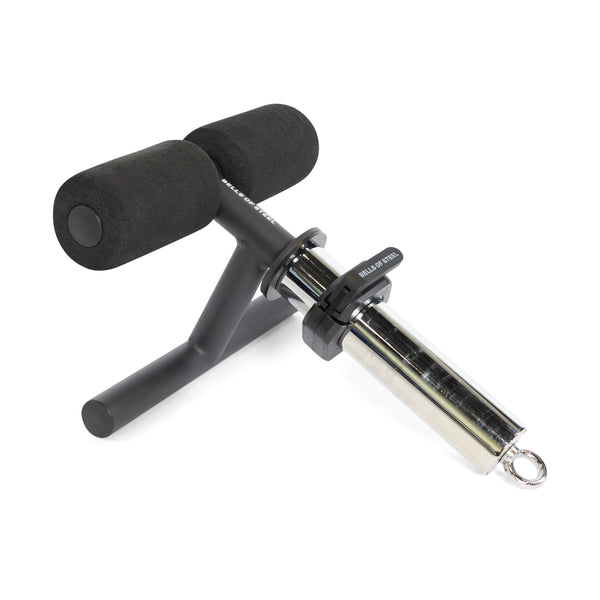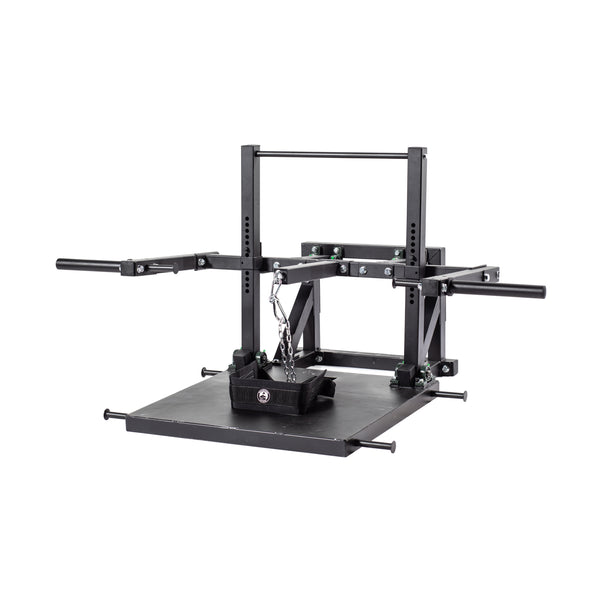Few tools are as underrated as the Tib Bar when building bulletproof legs and boosting overall athletic performance.
But what is this piece of gym equipment that athletes and fitness enthusiasts are raving about? Let’s dive into the world of Tib Bars, their components, materials, and how to spot a high-quality one.
What is a Tib Bar?
A Tib Bar, short for Tibialis Bar, is a specialized piece of fitness equipment designed to strengthen the tibialis anterior muscle.
This muscle runs along the front of your lower leg and is critical in ankle mobility, knee stability, and overall lower body function.
By isolating and strengthening this often-overlooked muscle, a Tib Bar helps improve athletic performance, reduce the risk of injuries, and support rehabilitation efforts.
Tib Bars are increasingly popular among runners, sprinters, basketball players, and anyone looking to enhance their functional fitness. Whether recovering from shin splints or wanting to build stronger legs, the Tib Bar is your go-to tool.
Components of a Tib Bar
Understanding the components of a Tib Bar helps you identify quality products and use them effectively. A typical Tib Bar consists of the following:
- Loading Sleeve: This is where you attach weight plates. The sleeve should be sturdy and compatible with standard or Olympic plates.
- Foot Holder: The mechanism that securely holds your feet during exercises. High-quality Tib Bars use padded or ergonomic foot holders to enhance comfort and stability.
- Main Frame: The structural body of the Tib Bar. Durability is key here, as it must withstand regular use and the weight load.
- Grip or Handle: Some Tib Bars include a handle to make carrying and setup easier.
Build Materials: What to Look For
The quality of a Tib Bar largely depends on its materials. Look for these features:
- Heavy-Duty Steel: Ensures the bar can handle heavy loads without bending or breaking.
- Powder-Coated Finish: Protects against rust and wear, extending the bar’s lifespan.
- High-Quality Padding: Prevents discomfort and keeps your feet secure during workouts.
How to Spot a High-Quality Tib Bar
Not all Tib Bars are created equal! Here’s what to consider when choosing one:
- Durability: The bar should feel solid and stable, with no wobbling or loose parts.
- Weight Capacity: Opt for a bar that can handle a wide range of weights to grow with your fitness level.
- Foot Holder Design: Ergonomic and adjustable holders ensure a snug fit for all foot sizes.
- Reputation: Check reviews and recommendations so others attest to its robust build and user-friendly design.
The Bells of Steel Tibialis Trainer Bar checks all the boxes above. Plus, it’s compatible with Olympic plates, resistance bands, and cable machines. If you’re serious about building stronger legs and preventing injuries, the Bells of Steel Tib Bar is a no-brainer.
Final Thoughts
A Tib Bar might not be the flashiest piece of gym equipment, but its impact on lower leg strength, stability, and performance is undeniable. Don’t let your lower legs be the weak link in your fitness journey—unlock their potential with the power of a Tib Bar!



